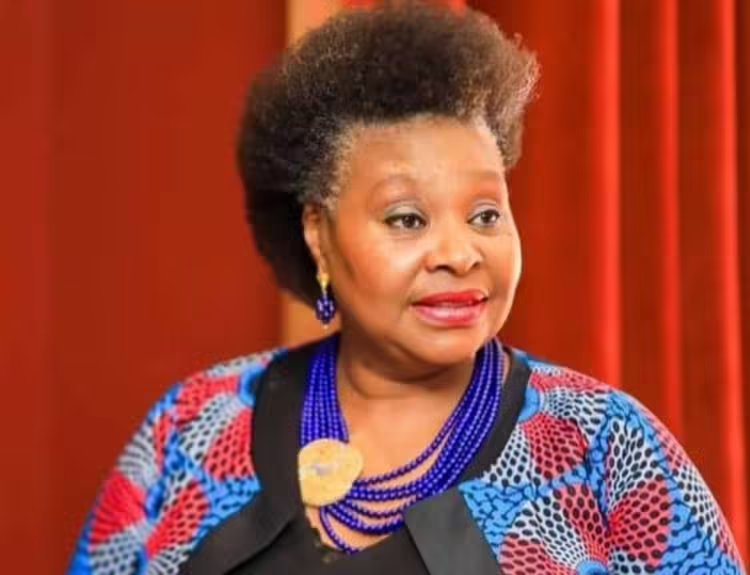When talking about tycoons like Aliko Dangote and Femi Otedola one cannot fail to mention Mike Adenuga. The Nigerian billionaire is renowned for building Globacom, Nigeria’s second-largest telecommunications operator.
Despite his wealth and influence, Adenuga loves his privacy. He enjoys living his life away from the spotlight. He has no social media account, seldom ever attends events, rarely makes public appearances and hardly does media interviews.
In fact, when his daughter got married in 2017, it was a very private affair. The event was held in the businessman’s Banana Island mansion and was only attended by close family and friends. All who attended were instructed to take no photos or videos.
Despite Adenuga’s aversion to the spotlight, his name constantly makes headlines due to his strategic business moves and ventures that have earned him a billion-dollar fortune. He has made his wealth from banking, real estate, oil and gas, telecommunications, and aviation industries.
Unlike some billionaires born into generational wealth, Adenuga is a self-made magnate. He started his entrepreneurial journey by selling lace and distributing soft drinks in Nigeria, making his first million at 26 from these ventures.
Over time, he transitioned to telecommunications and oil production. His mobile phone network, Globacom has over 60 million subscribers. His oil exploration outfit, Conoil Producing, operates six oil blocks in the Niger Delta. Globacom also built Glo-1, a 6,100-mile-long submarine Internet cable to the U.K. via Ghana and Portugal.
Adenuga was listed on Forbes as the fifth richest man in Africa, with a net worth of $6.9 billion. In Nigeria, Adenuga is the second richest person after Dangote.
He is popularly known as “The Bull,” an ode to his strength, resilience, and drive. Adenuga is known to be dedicated to his work, sleeping very little when working on a project. He pushes his employees to give their all and has zero tolerance for incompetence or sloppiness.
Early life and education
Adenuga was born on April 29, 1953, in Ibadan, Nigeria, to Oloye Michael Agbolade Adenuga Sr. and Omoba Juliana Oyindamola Adenuga (née Onashile, of Okesopin, Ijebu Igbo), a woman of royal Ijebu descent. His father was a schoolteacher, and his mother was a businesswoman.
Adenuga attributes his success to his mother who introduced him to business and served as his adviser up until her death in 2005.
The mogul’s educational journey began at Ibadan Grammar School, and he then earned his higher school certificate from Comprehensive High School Aiyetoro. After high school, Adenuga worked as a taxi driver to fund his university education. He attended Northwestern Oklahoma State University in the United States, earning a degree in Business Administration. Afterwards, he pursued an MBA at Pace University in New York.
Career
After university, Adenuga returned to Nigeria and got into business. He started by selling removable car stereos and later joined the family business, running the family sawmill factory in Ogun State.
As the business grew, he expanded into sawmill equipment importation, then beer importation, and finally lace importation. Adenuga began selling lace materials and supplying soft drinks, a venture that set him up for success. By 26, he had made his first million. Years passed, and Adenuga made a name for himself as a savvy businessman.
In 1990, Professor Jubril Aminu, as petroleum minister under General Ibrahim Babangida, decided to push forward with his policy of encouraging indigenous participation in the Nigerian oil and gas industry. Adenuga was one of 11 Nigerian entrepreneurs to receive oil licenses.
The tycoon invested over $100 million in exploration and drilling activities. In 1991, Adenuga’s Consolidated Oil struck oil in Southwestern Ondo State. It became the first indigenous company to discover and produce oil in commercial quantities. This marked the start of the exponential growth of Consolidated Oil, now Conoil, becoming one of Nigeria’s most successful indigenous oil and gas companies.
Adenuga identified potential in the National Oil and Chemical Company. He acquired the company, infused it with fresh investments, and rebranded it as Conoil Plc. The company has since become a household name in Nigeria, boasting a network of over 450 retail outlets nationwide. It is a leader in modern retail formats, including mega stations and non-space pumps, and holds the top spot in the aviation fuel market.
With Adenuga at the helm, Conoil Producing now operates six promising oil blocks in the Niger Delta, with a daily production of approximately 20,000 barrels. The oil company also has substantial oil reserves, estimated in millions of barrels, and vast gas reserves in trillions of cubic feet. The magnate has a 74.4% stake in Conoil Plc, which supplies several petroleum products, including petrol, diesel, kerosene, and aviation fuel.
Globacom
In 1999, Adenuga was issued a Global System for Mobile Communications (GSM) license. However, he faced setbacks, and the license was revoked, resulting in a loss of $20 million. Despite this, he did not give up and, in 2003, successfully secured a license, setting the stage for Globacom.
Globacom entered the Nigerian market two years after its competitors, but quickly grew into a giant under Adenuga’s leadership.
The telco became known for its innovative approaches, such as championing per-second billing, a revolutionary concept that democratized phone usage for Nigerians, solidifying Globacom’s status as a trailblazer in Nigeria’s telecommunications industry.
Globacom currently operates in several regions, including Ghana and Benin, and continually pushes boundaries in the telecommunications industry, pioneering various network technologies such as 2.5G, 3G, and 4G LTE.
Globacom made history as the first single company to build a high-capacity submarine fibre-optic cable, known as Glo-1. This transformed internet connectivity in Nigeria, significantly increasing internet speeds and download rates.
With a staggering investment of $250 million, solely funded by Globacom, Glo-1 marked the first of its kind in Africa. Stretching over 9,800 kilometres, the cable links Nigeria to Europe and America, with landing points along the West African coast and Europe.
The submarine cable was perhaps one of Adenuga’s most strategic and profitable investment, evidenced during a recent submarine cable cut that affected millions of users in Nigeria and several other African countries. While other subscribers were affected by the cut, Globacom users remained unaffected, continuing to enjoy uninterrupted internet connectivity and other services throughout the outage.
Banking
Adenuga entered the banking industry by establishing Devcom Bank and Equitorial Trust Bank (ETB).
In 2004, the Central Bank of Nigeria announced the recapitalization of the banking sector from N2 billion to N25 billion, effective December 31, 2005.
ETB met this threshold with ease, showing its stability and financial might. In 2006, Adenuga orchestrated the merger of ETB and Devcom Bank, laying the groundwork for an even more formidable presence in the industry. Years later, the merged entity consolidated further, joining forces with Sterling Bank Plc.
Today, Adenuga remains a significant shareholder in Sterling Financial Holding. This publicly traded giant operates two key subsidiaries: Sterling Bank Plc and Alternative Bank Limited.
Aviation
Adenuga also has dealings in the aviation sector. His Conoil Aviation, a subsidiary of Conoil Plc, produces, stores, transports, and delivers jet fuel across major Nigerian airports, including Nnamdi Azikiwe International Airport in Abuja and Margaret Ekpo International Airport in Calabar.
Philanthropy
Besides being an established billionaire businessman, Adenuga is known for his generosity. He loves giving back to his community.
The billionaire established the Mike Adenuga Foundation, which focuses on social and economic empowerment across Africa.
It has supported numerous initiatives in health, education, entrepreneurship, and rural development. During the COVID-19 pandemic, Adenuga donated N1.5 billion to aid in combating the virus.
He has also donated millions of dollars to aid flood victims in Bayelsa State and supports several educational and religious institutions in Nigeria and Ghana.
His contributions to society have earned him some of the highest national honours in Ghana, including the Companion of the Star of Ghana (CSG), and in Nigeria, the Grand Commander of the Order of the Niger (GCON), usually reserved for Vice Presidents.
The magnate was also commended by French President Emmanuel Macron, who awarded him France’s highest national honour, the “Commander of the Legion of Honour,” in recognition of his contributions to the development of French-Nigerian relations, his appreciation of French culture, and his advancement of humanity.
Family
Adenuga is married to Mrs. Titi Adenuga (née Adewale). The pair has eight children: Oyin, Babajide (Bobo), Paddy, Bella, Eniola, Bimbo, Sade, and ‘Niyi Jnr. They have also been blessed with grandchildren.






